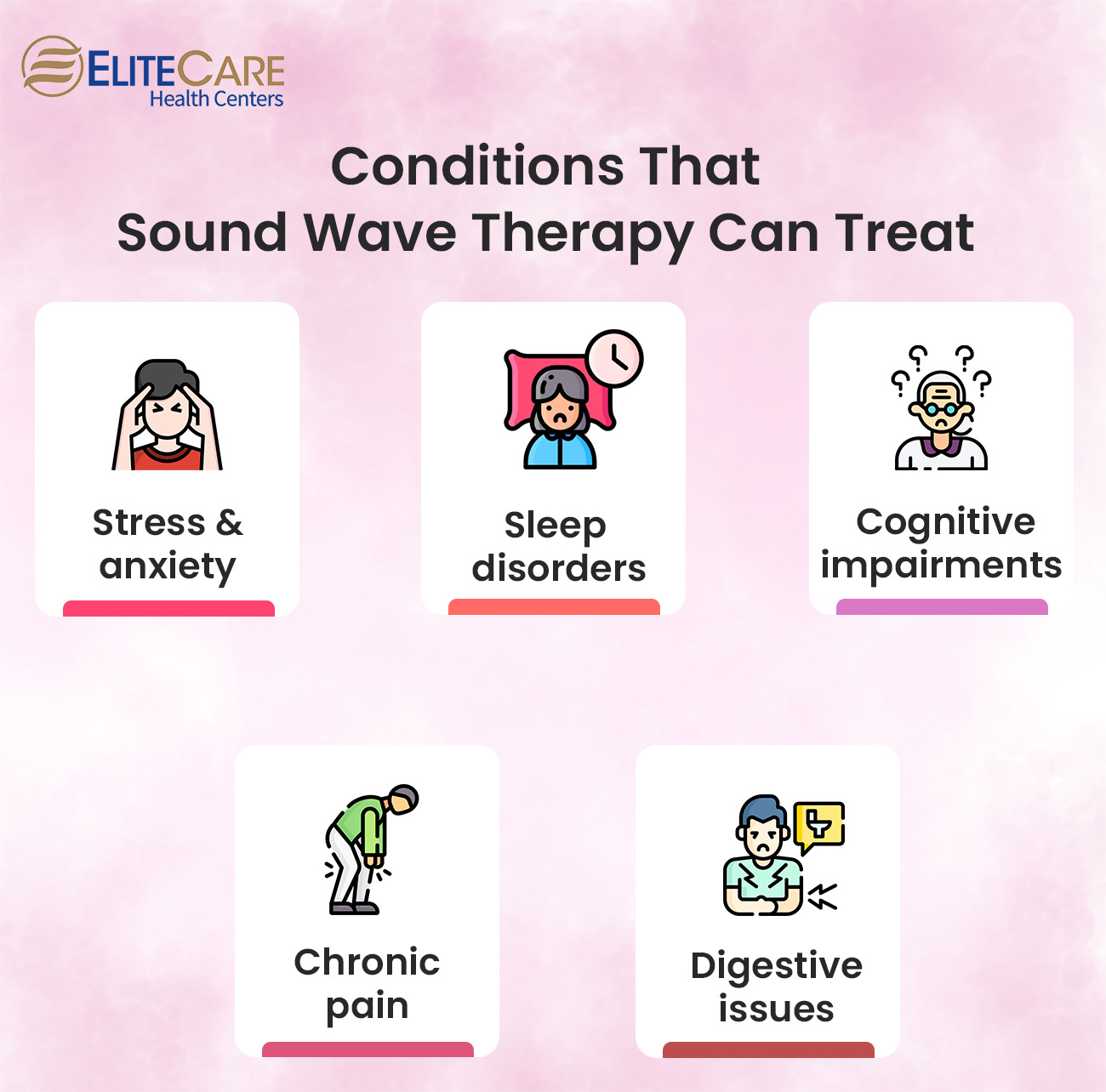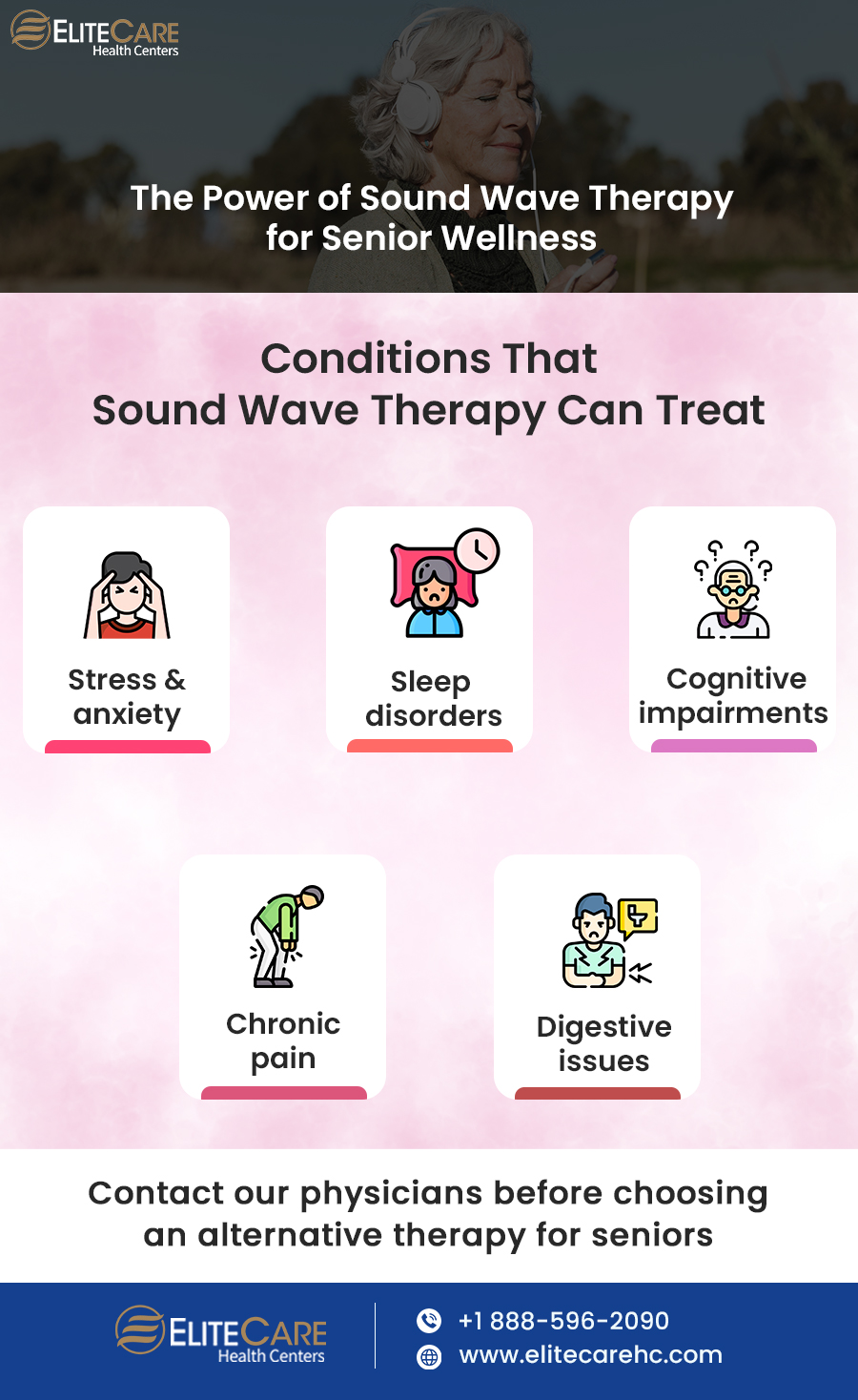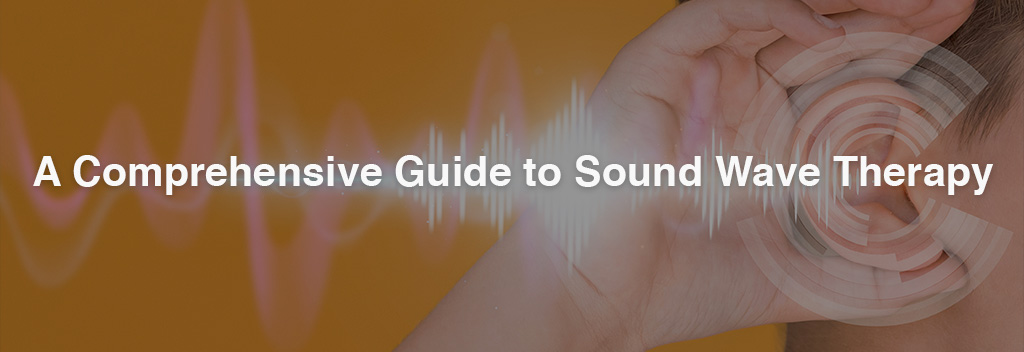
Also known as sound healing, sound wave therapy is a holistic approach that utilizes the power of sound vibrations to promote physical, mental, and emotional well-being. This is an ancient practice that has been gaining popularity in recent years as people continue to seek natural and alternative methods to support their health.
Through the intentional use of instruments like singing bowls, tuning forks, gongs, and even the human voice, sound therapy creates a harmonious environment that resonates with our body and mind.
In this blog post, we will share detailed insights into the benefits of sound wave therapy, its different techniques, and more. Read on to learn more.
How Sound Wave Therapy Works
Sound is a form of energy, traveling in waves in a medium, such as air or water. These waves create vibrations that our ears perceive as sound.
However, contrary to popular misconception, sound waves not only affect our auditory system but also interact with the cells, tissues, and other organs. When sound waves enter our body, they travel through our tissues and fluids, producing vibrations at a cellular level. These vibrations can significantly impact our physiological systems, promoting healing and balance.
Here's how sound waves affect the body:
Cellular resonance
Each cell in our body has its own vibrational frequency. When exposed to external sound waves, cells can resonate with these frequencies, leading to a state of harmony and coherence. This resonance can enhance cellular communication and support the body’s natural healing processes.
Relaxation response
Sound therapy can activate the parasympathetic nervous system responsible for the body’s rest-and-digest response. This activation induces deep relaxation, reduces stress, and anxiety, and promotes overall well-being.
Brainwave entrainment
Certain sound frequencies can influence brainwave patterns, where the brain can synchronize its activity with the external stimulus, promoting mental clarity, focus, and relaxation.
Energy centers (chakras)
According to ancient traditions like Ayurveda, sound therapy can influence the energy flow within the body, particularly in the energy centers (chakras). Each chakra is associated with specific frequencies, and sound waves can help balance and harmonize these energy centers, facilitating overall well-being.
Conditions That Can Be Treated With Sound Wave Therapy

1. Stress and anxiety disorders
This therapy can induce a deep state of relaxation and promote a sense of calmness, allowing the body and mind to unwind and restore balance.
2. Sleep disorders
Many individuals, particularly older adults, struggle with sleep-related issues such as insomnia or disrupted sleep patterns. Sound therapy can promote quality sleep by promoting relaxation, reducing racing thoughts, and encouraging a peaceful and restful state.
3. Cognitive impairment
Sound has a powerful impact on memory recall, and it can be used to stimulate memory retrieval. Engaging in sound therapy activities, such as playing musical instruments, singing, or listening to complex music, can stimulate various regions of the brain. This stimulation promotes neural connections and plasticity, which can enhance cognitive abilities like attention, focus, and problem-solving. Additionally, sound wave therapy can also improve motor skills and coordination.
4. Chronic pain
Sound wave therapy has shown promising results in managing chronic pain conditions, including arthritis, fibromyalgia, and musculoskeletal pain. The vibrations and frequencies used in this therapy can help relax tense muscles, stimulate the release of endorphins (natural painkillers), and improve blood circulation, leading to pain relief.
5. Digestive disorders
Relaxation induced by sound wave therapy can positively influence the digestive system. Conditions such as irritable bowel syndrome (IBS), indigestion, and acid reflux may benefit from the stress-reducing effects of sound therapy, potentially reducing inflammation and leading to improved digestion.
Individuals should visit a medical clinic and consult a primary care physician or sound therapy practitioner to determine the most appropriate application of this therapy for specific health conditions.
Types of Sound Wave Therapy for Seniors
Sound wave therapy offers various techniques and approaches that can benefit seniors. Here, we will understand about two common types of sound wave therapy.
1. Low-frequency sound therapy
It uses deep vibrations and resonances to induce relaxation and promote healing. It typically utilizes instruments such as singing bowls, gongs, or specialized mats that emit low-frequency vibrations. These vibrations can penetrate deeply into the body, reaching the cells, tissues, and even bones.
Suitable applications
This low-frequency sound therapy is often used for physical relaxation, pain relief, improved sleep, and overall relaxation. It also helps relieve muscular tension, joint stiffness, or chronic pain conditions.
2. High-frequency sound therapy
In this procedure, a therapist uses sounds and vibrations at higher frequencies that resonate with different energy centers in the body, such as the chakras. Instruments like tuning forks, crystal bowls, or specialized sound therapy devices are used to produce precise frequencies.
Suitable applications
High-frequency sound therapy is best suited for those looking for emotional and energetic balance, mental clarity, and spiritual connection.
Sound therapists may integrate both low-frequency and high-frequency approaches based on individual needs. Consult a qualified sound therapy practitioner to ensure safe and effective application of sound therapy.
How To Find a Reputable Sound Wave Therapy Practitioner
In order to get the most effective results, it is crucial to consult a qualified, experienced, and trustworthy sound wave therapist.
- Seek recommendations from trusted sources such as primary care physicians, friends, or family members who have had positive experiences with sound therapy.
- Individuals can also utilize online directories, forums, or wellness websites that list verified sound wave therapy practitioners.
- Check if the practitioner has received proper certification or training in sound wave therapy.
- Ask about their previous experience working with seniors or individuals with similar health conditions or goals.
- Read customer reviews and testimonials about the practitioner’s services.
Sound wave therapy is a complementary approach to conventional medical care rather than a standalone treatment option for seniors. Consult a primary care physician before opting for any alternative treatment options for elderly family members. Contact EliteCare Health Centers, a healthcare center in Florida, and schedule an appointment with a board-certified primary care physician. We offer a wide range of senior care services, including annual physical exams, venipuncture, preventive care, and more.






